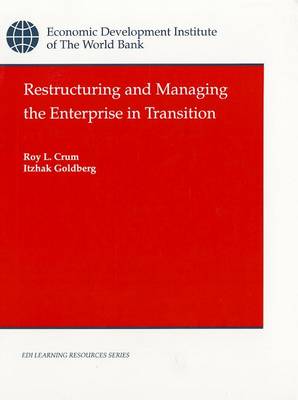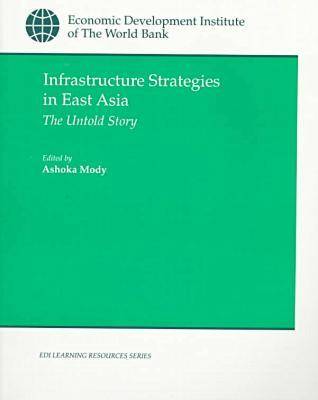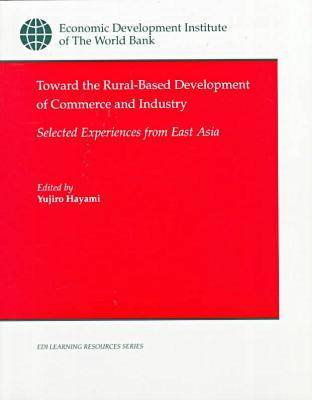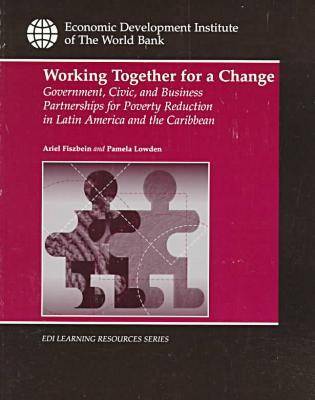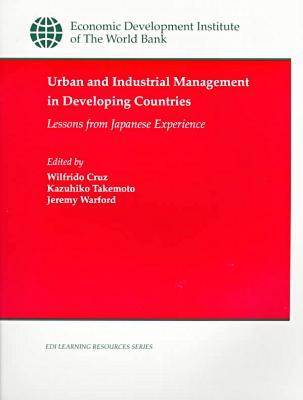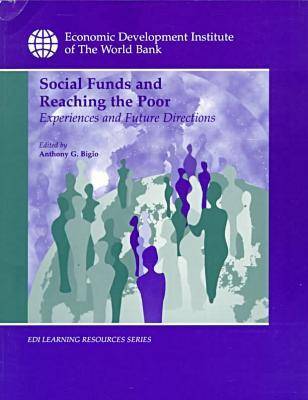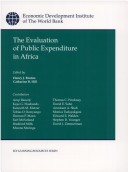EDI Learning Resources
7 total works
A wide gap still exists between Western concepts and their application in the ex-socialist countries during transition. Most Western models in financial management make assumptions about the efficiency and stability of markets and the signals that can be obtained and also assume that traditional accounting information is available and can be used for management purposes. A new paradigm is needed to manage the finance function in a transition economy experiencing hyperinflation since stamdard assumptions are not valid in most ex-socialist countries. This book describes the adaptations of financial techniques as it reviews standard financial concepts and tools, adjusts them when necessary to the unique conditions in the ex-socialist enterprises, and then presents the restructuring context and some strategies that are based on the application of these tools.
A traditional paradigm in development economics assumes that the process of modern economic growth is associated with a major shift in labor from rural hinterlands to urban industrial centers. However, the logic of economic development does not dictate that industrialization and urbanization are intertwined and inseparable, as assumed in the traditional paradigm. The studies reported in this volume examine whether an alternative route of economic development might exist in which the modern production base also moves into the rural sector instead of the rural labor force alone moving into the urban sector. Part I focuses on historical experiences in Japan such as technical and institutional innovations in rice marketing, and the formation of Toyota's relationship with suppliers. Part II reports on current developments in East Asia including the rural garment and weaving industries in Northern Thailand, and rural entrepreneurship and industrial development in Korea.
The Economic Development Institute (EDI), in cooperation with the United Nations Development Programme (UNDP) and the Inter-American Foundation, launched the Partnerships for Poverty Reduction program in six countries in Latin America and the Caribbean--as part of the Bank's Mission 'to fight poverty with passion and professionalism for lasting results.' The program sought to promote the adoption of an approach to poverty reduction that relies on partnerships among local, regional, and central governments, other public sector agencies, nongovernmental organizations, private sector companies and other civic organizations. This publication is a result of these collaborative efforts. It contains a powerful message about partnerships with the state, civil society and business: these partnerships have the potential of becoming the basis of an approach to poverty reduction that replaces old and failed paradigms in the region.
This book summarizes the key features of Japan's work to resolve the urban and industrial pollution problems stemming from its rapid post-war industrial expansion. Drawing upon views expressed by Japanese and participants from other East Asian countries in an international workshop, this book identifies the main areas in which developing countries may profit from the Japanese example. The report also contains a series of short essays by Japanese experts on Japan's environmental management history, recent trends in Japanese environmental indicators, and summaries of key themes that emerged during the workshop.
This paper reports on proceedings from an international workshop on social funds, held on May 21-24, 1997, in Washington, DC. The objectives of the workshop were to take stock of a decade's implementation experience of social funds with a view to assessing their impact on poverty reduction; establish a broad consensus on their main achievements, weaknesses, and risks; generate a set of recommendations for improving existing operations as well as for the design of future social funds; and facilitate the integration of international and regional networks of social funds.
The Evaluation of Public Expenditure in Africa
by World Bank, Henry J Bruton, Catharine B. Hill, and Arup Banerji
Published 1 January 1996
